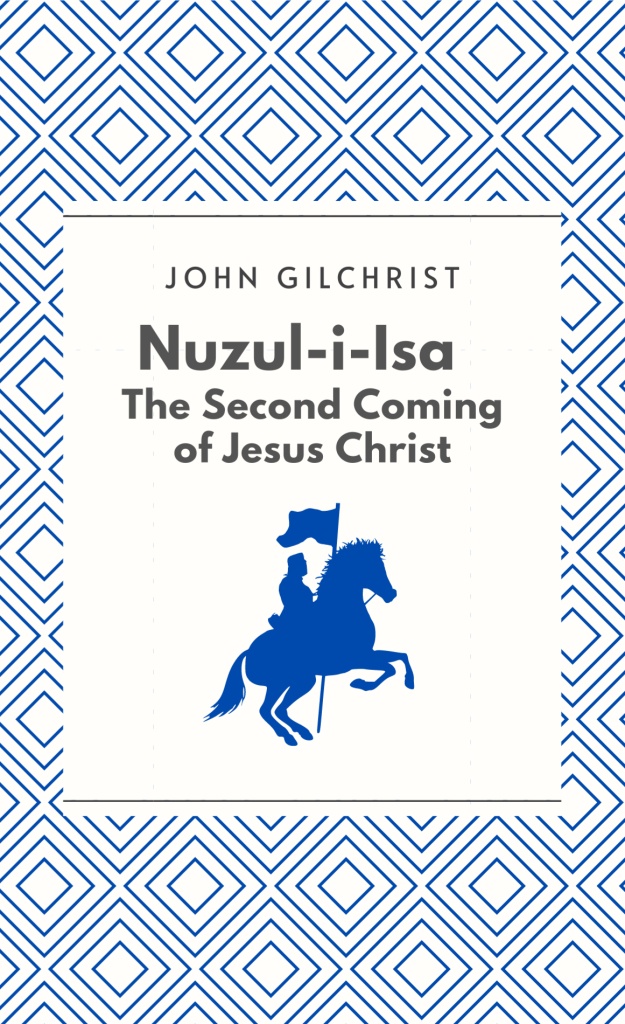The Return of Jesus in the Bible
Nuzul-i-Isa: The Second Coming of Jesus Christ


Chapters
One of the great themes of the Christian Scriptures is the return of Jesus to earth at the end of the age. The ultimate glory of the Messiah, God's Supremely Anointed One, was foretold by many of the prophets who went before him and the Jewish Scriptures are replete with predictions about his eternal reign. So likewise early Christian writers dwelt much on this theme. It is our purpose, however, to begin by examining the words of Jesus himself on this subject to see what he, the focal point of this great drama which is yet to unfold, taught and believed about his coming return to earth.
On the last night that he was alive before the end of his natural life on earth, he sat with his disciples and, in a long discourse in which he poured out many of the deepest truths he could convey to them, he spoke much of his eventual return to earth. He said to them:
"In my Father's house are many rooms; if it were not so, would I have told you that I go to prepare a place for you? And when I go and prepare a place for you, I will come again and will take you to myself, that where I am you may be also." John 14:2-3.
With these words Jesus introduced a theme that was to recur again and again during his last message to his disciples. "I will come again" was his ultimate promise, one couched in terms calculated to bring comfort and hope to all who truly believe in him. He encouraged those who sat with him with the assurance that he was only going to heaven to make ready a place for them also and that he would duly return so that they could join him in his everlasting kingdom. As he continued with his deep teachings that night he went on to promise:
"I will not leave you desolate; I will come to you. Yet a little while, and the world will see me no more, but you will see me; because I live, you will live also." John 14:18-19.
Again the reassuring words came, "I will come to you", this time with the added promise that, just as he would be alive for ever in the kingdom of heaven, so they too would be taken to be with him and would also enjoy eternal life. As his discourse continued he returned yet again to the day when he would return to earth saying to them:
"A little while and you will see me no more; again a little while, and you will see me." John 16:16
His disciples were perplexed, not understanding what he could possibly mean. Jesus promptly warned them that, as soon as he had gone, they would suffer much persecution and loss and that their lot in this world would be at best uncertain and of no abiding value. Yet to give them a thorough hope and assurance that their trials would be but for a while and that their ultimate destiny was eternal life and glory in the kingdom of God upon his return, he said to them:
"So you have sorrow now, but I will see you again and your hearts will rejoice, and no one will take your joy from you." John 16:22
Before his own disciples Jesus set his eventual return to earth as their greatest hope and the ultimate objective of their faith. A promise of eternal rejoicing was placed before them as the great reward they would enjoy by keeping their faith in him until he returned and they duly saw him again.
Jesus himself obviously regarded his ultimate return to earth as the supreme hope of all his true followers. He told them they would suffer much anguish and rejection, many tears and trials, before that day, but exhorted them to endure them all because of the glory that was to follow at his return. Not only did he make such promises to his disciples, however, but he also warned his enemies that his return would wipe away all their gaiety and confidence and would spell their eternal doom and disgrace. He boldly testified to the Jewish High Priest:
"But I tell you, hereafter you will see the Son of man seated at the right hand of Power, and coming on the clouds of heaven." Matthew 26:64
The predictions he constantly made of his return to earth, therefore, were given as words of comfort to his disciples and as a warning to his foes. The former would be raised to eternal glory in heaven, the latter would be cast down to eternal punishment in hell. He spoke not of returning at some time before the end of the age but, rather, on the Day of Judgment itself and summed up his teaching in these words:
"When the Son of man comes in his glory, and all the angels with him, then he will sit on his glorious throne. Before him will be gathered all the nations, and he will separate them one from another as a shepherd separates the sheep from the goats, and he will place the sheep at his right hand, and the goats at the left." Matthew 25:31-32.
Those at his right hand, he promised, would inherit the kingdom prepared for them from before the foundation of the world, while those at his left would be thrown into the fire prepared for the devil and all his host. The return of Jesus, therefore, in the teaching of Jesus himself as it is recorded in the Bible, will be the great, climactic event of history when he will return to judge the living and the dead, awarding eternal life to those who love and obey him while casting the rest into outer darkness where they will remain for ever and ever as objects of God's wrath and anger.
Let us now examine the teaching of Islam, as it appears in the Qur'an and the Hadith, regarding the return of Jesus to earth.